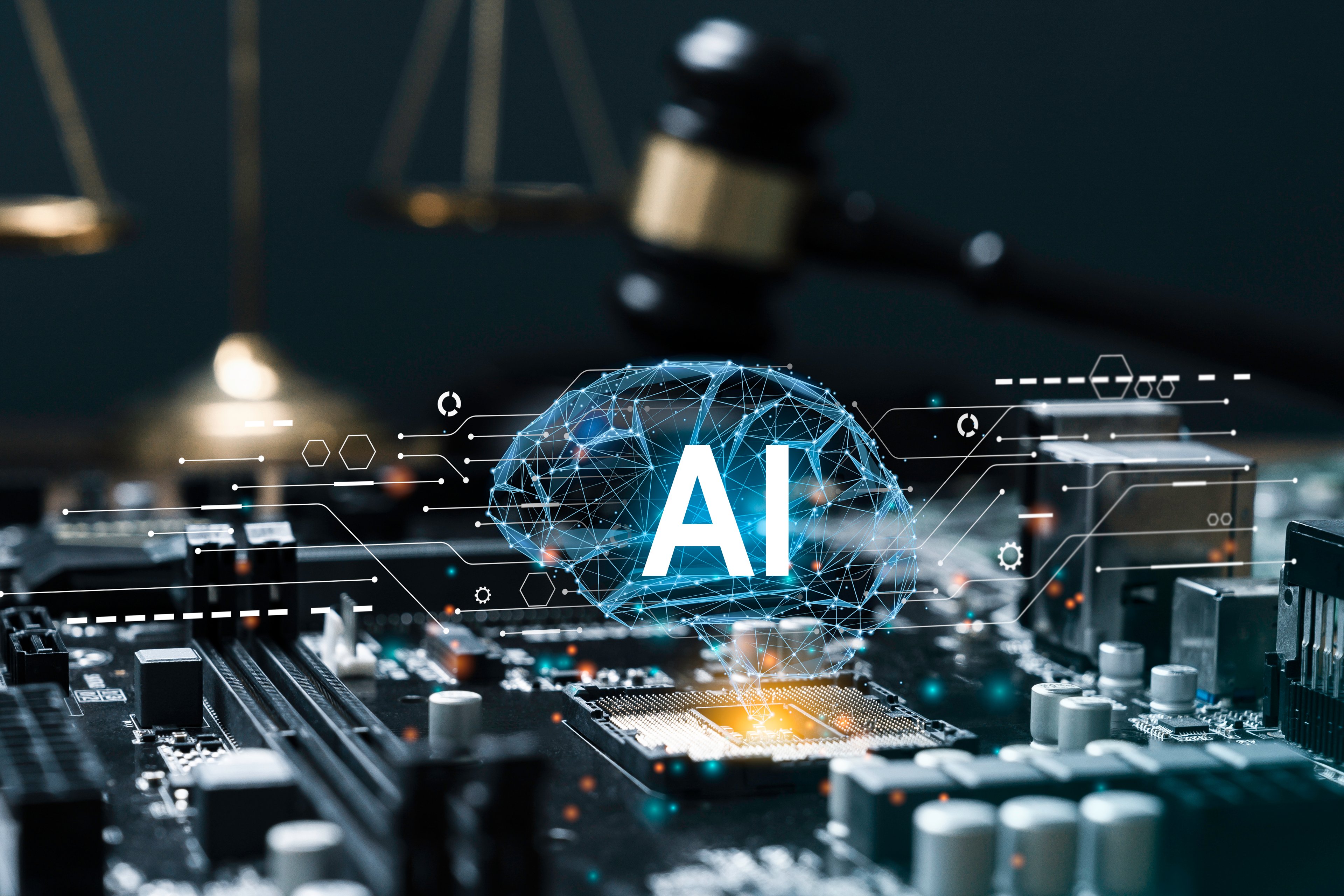The artificial intelligence (AI) market could grow at a compound annual growth rate (CAGR) of 57% between 2017 and 2025 to become a $36 billion market according to Grand View Research. However, this fragmented market can be tough to navigate for investors who haven't kept up with the latest AI developments. Let's highlight the main trends investors should keep an eye on.
Making sense of all the data
Tech giants like Alphabet's (GOOG 0.68%) (GOOGL 0.73%) Google, Facebook (FB +1.77%), and Amazon (AMZN +2.12%) accumulate lots of data as users use their services. However, that information is useless without AI-powered "machine learning" tools to turn those queries into "actionable" data.

Image source: Getty Images.
These tools help Google and Facebook craft targeted ads and recognize uploaded photos. Amazon uses AI tools to predict what shoppers will buy based on past purchases and make recommendations.
AI tools also help personal assistants -- like Apple's Siri, Google Assistant, and Amazon Alexa -- gather more information through voice searches. They also power chatbots, though the recent failures of Facebook's chatbots and its M virtual assistant indicate that they aren't quite ready for mainstream users.
Many other companies that regularly accumulate user data are using machine learning to improve their core businesses. As many pundits have declared in recent years, "data is the new oil."
Investing in machine learning
That's why many major tech companies have dedicated machine learning (ML) divisions. In late 2013, Facebook launched FAIR (Facebook AI Research), a dedicated unit for advancing its AI capabilities. In 2014, IBM launched Watson Analytics, an AI-driven analytics platform, for business users.
Amazon launched its ML service in 2015, and expanded that ecosystem last November with the ML Solutions Lab, which connects machine learning experts across Amazon to AWS (Amazon Web Services) customers. Microsoft also launched its machine platform for Azure in 2015, while Google launched its Cloud Machine Learning platform in 2016.
But it's not just American companies that are pouring billions of dollars into AI. In China, tech giants Baidu and Tencent are also using AI to respectively expand their search and social ecosystems into fledgling markets like driverless cars.
New hardware for AI applications
Processing raw data into AI-driven results requires powerful data centers. Intel's Xeon CPUs still power the majority of data centers worldwide, but NVIDIA's (NVDA +1.53%) high-end Tesla GPUs are gaining ground in the AI market.

Image source: Getty Images.
That's because NVIDIA's GPUs can often process certain scientific tasks, like machine learning processes, more efficiently than stand-alone Xeon processors. As a result, many major AI players -- including Facebook, IBM, Google, and Baidu -- all use NVIDIA's GPUs to power their machine learning platforms.
Computer vision and autonomous vehicles
Intel, NVIDIA, NXP and other chipmakers are also battling it out in the computer vision and autonomous vehicle markets. Intel's Mobileye and Movidius subsidiaries produce computer vision chips and solutions that help cars, drones, and other devices "see" their surroundings and avoid obstacles.
NVIDIA offers Drive PX, an onboard computer that gives vehicles driverless capabilities. NXP, the biggest automotive chipmaker in the world, produces a rival platform called BlueBox.
Industrial automation
Another key market to watch is the Industrial Internet of Things (IIoT), which consists of automated machinery and industrial tools. Amazon already demonstrated the power of merging AI with the IIoT by populating its warehouses with tens of thousands of robots. Many companies across a wide range of industries are following suit with similar automation plans.

Image source: Getty Images.
These machines will inevitably replace many manual labor jobs, but they'll streamline production capabilities while feeding more data into the IIoT -- which can be processed into actionable data with AI tools.
Major chipmakers to watch in this market include Texas Instruments and Cypress Semiconductor, which produce a wide range of analog and embedded chips for those machines.
The key takeaway
The AI market is scattered across multiple industries, and there aren't any major "pure play" AI stocks on the market today. AI generally complements the main businesses of major companies, instead of being a core revenue driver. However, companies that fail to invest in machine learning today could be left in the dark.










